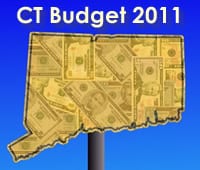 The new CT budget will take effect on July 1 and will be taking more money out of our already tight wallets. Some of the new changes include:
The new CT budget will take effect on July 1 and will be taking more money out of our already tight wallets. Some of the new changes include:
Sales tax will increase from 6% to 6.35%. You will no longer have the exemption for clothing under $50. (It seems as if there still will be a tax-free week coming up later in the summer on clothing.) Sales tax will increase on alcohol, cigarettes and hotel rooms. You will now pay sales tax on items that you did not before, such as manicures / pedicures, non-prescription drugs , vitamins and more.
State Income tax will increase and there will be changes to the current tax brackets (retroactive to January 1, 2011). The new income tax rates are 3%; 5%; 5.5%; 6.0%; 6.5% and 6.7% (see your accountant for information on your new tax bracket.)
Motor vehicle fees (driver’s licenses and car registrations) will be increased.
What can you do about this? Adjust your your spending.
As I tell my coaching clients, start by writing out your monthly budget. I know this is painful, but you have to know where you stand if you hope to make changes.
- Don’ t forget all those expenses that you pay that aren’t monthly – license and registrations, activity fees for your children, classes, gifts etc.
- If you still feel like something is missing, track your cash spending with a daily log. You will see where the cash in your wallet goes.
Once you have an accurate picture of your spending, you can look at the big picture and make the changes necessary to meet the additional costs of the new state budget.
 Now that Spring has arrived, most of us think spring cleaning. I am going to put a twist on that for this year that will save you money, too. I want you to spring clean your finances. This is not an all day project.
Now that Spring has arrived, most of us think spring cleaning. I am going to put a twist on that for this year that will save you money, too. I want you to spring clean your finances. This is not an all day project.



